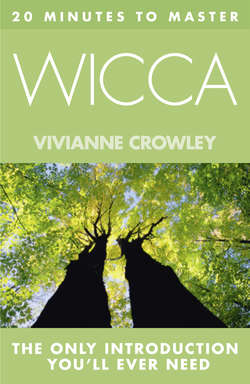Читать книгу 20 MINUTES TO MASTER … WICCA - Vivianne Crowley, Vivianne Crowley - Страница 11
COVENS AND COMMUNITY
ОглавлениеUnless you live in Salem, Massachusetts, site of the worst Witch persecutions in the United States and today centre of a thriving Witch tourist industry, you will not see Witches in black robes and pointed hats in your local supermarket. This is not because Witches prefer a diet of eye of newt and toe of frog, or that they do not do mundane things like shopping. However, for the most part, Witches today are much like everyone else; although they tend to be better educated than average. Some Witches are authors and teachers and spend all their time writing about and teaching the Craft; others are full-time healers or tarot readers. However, most Witches have conventional jobs. Certain professions attract Witches more than others. In the United States, information technology is popular; ironically the followers of the Old Religion are at the leading edge of high technology. In Europe, health care and social workers; artists, musicians and actors; and teachers and lecturers are the three biggest groupings.
Some Witches are solo Witches. Others belong to covens. Covens are stable groups of like-minded people who meet together to worship the Gods and do magic. They may also engage in social, environmental and teaching activities. The classic number of people in a coven is thirteen; more than this and groups become unwieldy and difficult to manage. However, many covens are smaller. Groups of five to nine can be very effective. Some are mixed-sex groups; others cater for Witches who prefer single-sex covens. Some Witches belong not to small covens but to training schools or coven networks which have hundreds of members. Whatever the size of the group though, it is important to remember that Wicca is not something that other people do for you, but something that you do for yourself. If we practise our Wicca solo that is obvious, but it is also the case in a group situation. Rites are participatory and emphasize the Divine within all.
Some Witches are trained by individual Witches and others come into Wicca through a coven operating an initiatory system. In some cases Witches come from Witch families, but most come from outside the tradition. They feel they are drawn to Wicca or are natural Witches seeking to make contact with teachers who can help them develop along the path. There are books through which it is possible to learn much. Books can add to our store of knowledge but it is difficult to learn Wicca from books alone. Learning Wicca is like learning anything else: at some stage we need to practise with others to improve our skill and knowledge and to assess how good we really are. Wicca is also a bit like learning a language. We can read books, listen to tapes, but in the end we need to speak that language with others to know how to use it.
Each coven has teachings derived from the accumulated generations who have worked in that particular coven. If it is part of an initiatory tradition, it will also have the core material of the tradition. This is recorded in a book of rites and spells, the Book of Shadows. Computers notwithstanding, each Witch must make his or her own handwritten copy. Wicca is part of the modern world, but it is also an inheritor of past traditions.
